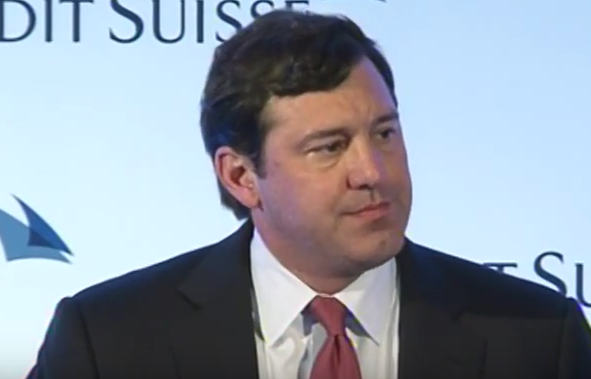XP Investimentos: “We Strongly Believe We Can Break the BRL 100 Billion Mark in Five Years”
| By Fórmate a Fondo | 0 Comentarios
The firm XP Investimentos has dedicated more than 10 years innovating and transforming the way Brazilians invest. They were the first firm that introduced the idea of “financial shopping” in the Brazilian market, aiming to provide more freedom of choice to their clients. The firm has already about BRL 35 billion in assets under management, and is expecting to grow up to BRL 100 billion in the next five years. In an exclusive interview with Funds Society, Beny Podlubny, Head of the Wealth Management division at XP Investimentos, talks about their main areas of development and growth, their international expansion plans, and the Brazilian investors’ preferences.
Since 2008, XP Investimentos has been the largest independent brokerage firm in Brazil, what factors would you say have shaped the success of the firm?
I believe several factors have contributed to our success, the first factor would be the partnership culture in the firm, our firm has attracted several outstanding professionals that act as owners. They are hardworking, committed and top performers. These same professionals will not stop working until reaching our main goal: the highest level of service. Secondly, our main focus are our clients. We do our homework daily and constantly compare ourselves to the best companies in Brazil known for this service. And thirdly, we invest on innovation, and when I say innovation I do not only mean technology, but also how we conduct businesses offering creative solutions and easy access to products and services.
XP Investimentos offers three type of services: Exclusive Advisory (Assesoria Exclusiva), Self-Service (Auto Atendimento), and the service offered through your Partner Network (Rede de Parceiros XP). Which line of business has shown greater growth in the last couple of years? And, which areas are a priority in terms of resource allocation for XP Group?
Since our Advisory Group is the newest line of business in the group and therefore the one with the smallest asset base, this is the one that is growing the most. We are having a tremendous growth in 2016, reaching more than BRL 3 billion on assets under management, up to April. On the retail side, we are also having huge growth, especially in the on line business. We have partnered with Red Ventures, and they are doing a fine job in helping us find new clients through our online platform. On March, we have opened 20,000 accounts and have raised more than BRL 2.1 billion.
What is the current size of the Wealth Management division unit? What are your goals for the next five years?
The XP wealth management platform can be accessed by our internal bankers and also by our partner network. Today we have around 15,000 clients with more than BRL 1million of investments, totaling BRL 15 billion.The wealth management market in Brazil is about BRL 1 trillion, and in five years we strongly believe we can break the BRL 100 billion mark.
When we consider the undeclared wealth held by Brazilians abroad, and the amount expected to bring the undergoing tax amnesty, we are even more confident about reaching this goal. At XP, we know that we are prepared to serve these clients in our Brazilian and US Platforms, as well as in our new European offices.
XP Investimentos has an open fund platform with more than 300 funds listed, are there any preferences on any particular asset management firm from investors?
Brazil has a long history of high interest rates. Therefore, clients are used to investing in bonds and fixed income funds. That is the biggest strategy for any portfolio in Brazil. Here at XP we have a strong due diligence process to select and approve the managers that are in our platform. We also offer market intelligence to our bankers and partners network in order to enable them to better serve their clients. Finally, clients can access our comparison tools to analyze the best risk adjusted returns.
XP Investimentos also distributes funds of XP Gestao de Recursos, being XP Long Short FIC FIM, XP Investor FI Renda Fixa Crédito Privado LP, and XP Referenciado FI Referenciado DI among the funds with larger assets under management, what do these strategies bring to investors?
Even though those funds are managed by XP, they compete in equal terms to any other fund in our platform. Those funds are managed so that they beat different benchmarks and are used by clients to have a diversified portfolio in a totally independent manner. Clients like and trust the XP brand, however, they only invest in those funds after comparing them to all the options they have in our platform.
Group XP has two office branches in the US, one in New York and another one in Miami, through its affiliated company, XP Securities. The firm currently serves institutional clients, are there any future plans of servicing wealth management clients (non-US resident offshore business)?
Actually, we are already serving Latin American clients through our US platform. We also just announced a new group of 10 bankers that are joining us to expand our European business. We aim to have USD 5 billion abroad in less than two years.
Brazilian equity and fixed income markets rallied since the beginning of the year on speculations on politic turmoil, but the Brazilian economy still faces serious challenges, and it is expected that the economy and corporate earnings will suffer from it. Are you increasing exposure to international assets? Which vehicles do you use for that purpose?
Brazil is living a very interesting moment. We are about to live an important political shift that will have major repercussions in society and economy. We can see asset prices move further and we are following the market closely in search for opportunities, constantly doing our homework. We also believe that Brazilian clients should have a diversified portfolio and that also means having US dollar denominated assets. Brazilians can access the offshore market through different vehicles. It all depends on how much money does the client have to invest and what are the client’s goals for that capital. In summary, nowadays there are several funds in Brazil that give exposure to the offshore market. Clients can also wire their money to an offshore platform and invest their money from there.
High inflation and depreciation of the Brazilian real had a great impact last year, how are you protecting portfolios from these events?
The political shift can dramatically change this dynamic. But there are several ways to protect a portfolio from an inflation peak, such as NTN-Bs, Brazilian treasury protected inflation notes. Regarding protecting a portfolio from currency depreciation, there are also many possibilities, one of them is through funds that hold USD based assets, such as equities and global fixed income. As aforementioned, our clients with bigger portfolios also have part of their wealth abroad.
Since the beginning, Grupo XP has put a lot of effort in developing an educational model with courses and conferences for its clients, how is this effort paying back to the firm?
XP’s culture is based on education. Since inception, XP collaborators have trained thousands of investors on how to build a portfolio and trade their money. The results are definitely a consequence of the company’s main beliefs. XP wants its clients to invest better. When clients are investing better, they bring more money and recommend our platform to their friends. I strongly believe that our education culture made us reach the BRL 35 billion mark and explains part of our growth.



